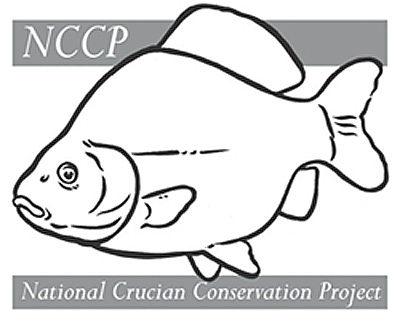Source: Angling Trust
Crucian carp have been a key species for anglers for as long as any of us can remember and there are few sights as beautiful in angling as seeing the golden flank of a fat crucian coming to the net. Over the past thirty years however many of the farm and village ponds that were a key habitat for crucians have disappeared and the stocking of a wide range of other carp species has led to inter-breeding and hybridisation. So, if we want crucian carp to be around for the next generation of anglers to catch we need to act now.
The primary objectives of the project are to:
• Promote the conservation of the species and its habitat
• Encourage the development of well-managed crucian fisheries
 Martin Salter, Angling Trust Campaigns Coordinator and one of the National Crucian Conservation Project team members said:
Martin Salter, Angling Trust Campaigns Coordinator and one of the National Crucian Conservation Project team members said:
“We are delighted to have been given a chance to bang the drum for crucians at the Angling Trust’s annual coarse fish conference and have decided to combine this with the formal launch of the project. We are receiving pledges of support from all over the country for the cause of crucian conservation and it is clear that many anglers want to be part of a crucian revival, which is music to our ears.”
Coarse Fish Conference
This year’s Coarse Fish Conference, being held on 28 May at the South Street Arts Centre in Reading and is aimed at coarse anglers, fishing clubs and riparian owners to provide inspiration and practical guidance to improve coarse fish stocks in rivers and stillwaters.
The conference will host the launch of the new National Crucian Conservation Project and will include presentation by members of the group explaining how ordinary anglers and angling clubs can get involved on the ground in helping to protect and promote the species.
The conference will also concentrate heavily on advising clubs, fishery owners and anglers about how habitat improvement can improve fish stocks and create a healthier and improved fishing environment through the new Defra backed ‘Catchment Based Approach’. The presentations will cover both rivers and stillwaters and there will be time for Q&A session so that attendees can get involved and ask questions.
The conference is booking fast and there are only limited places still available, so if you are interested in coming CLICK HERE for more information and online booking details.










